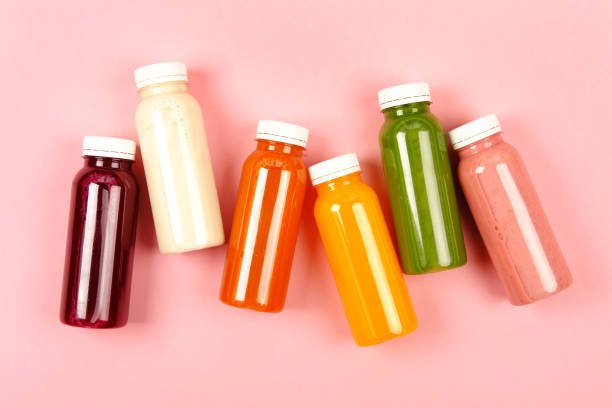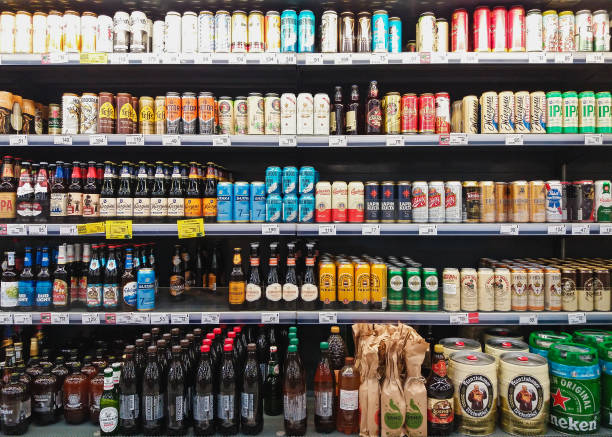Functional beverages, designed to offer more than just hydration or refreshment, have seen a significant rise in popularity in recent years. These drinks are formulated to provide specific health benefits beyond basic nutrition, addressing various aspects of well-being, such as digestion, immunity, and mental focus. This article explores the growth of functional beverages, their health benefits, and the market trends driving their popularity.

Understanding Functional Beverages
Functional beverages are drinks enhanced with ingredients that offer health benefits beyond their basic nutritional value. They are formulated to support specific health goals and improve overall wellness. Key categories of functional beverages include:
- Probiotic Drinks: These beverages contain live microorganisms, such as bacteria or yeast, that provide health benefits by improving gut health and digestion. Examples include kombucha, kefir, and yogurt drinks.
- Energy Drinks: Designed to boost energy levels and enhance physical and mental performance, these drinks often contain caffeine, vitamins, and amino acids. They are popular among athletes and individuals with demanding lifestyles.
- Sports Drinks: These beverages are formulated to replenish electrolytes and fluids lost during exercise, helping to maintain hydration and support athletic performance.
- Herbal Teas: Infused with herbs and botanicals, herbal teas offer a range of health benefits, such as calming effects, immune support, and antioxidant properties.
- Functional Waters: Enhanced with vitamins, minerals, and other beneficial ingredients, functional waters aim to provide added health benefits while offering hydration.
Health Benefits of Functional Beverages
Functional beverages offer a wide range of health benefits, depending on their ingredients and formulation. Some notable benefits include:
- Improved Digestive Health: Probiotic drinks, such as kombucha and kefir, contain beneficial bacteria that support gut health. These probiotics help balance the gut microbiome, improve digestion, and enhance immune function.
- Enhanced Energy and Focus: Energy drinks often contain caffeine, which can improve mental alertness, concentration, and physical performance. Additionally, ingredients like B vitamins and amino acids can support energy metabolism and reduce fatigue.
- Hydration and Recovery: Sports drinks are formulated to replenish electrolytes lost through sweat and provide essential fluids for hydration. They also help with muscle recovery and prevent dehydration during intense physical activity.
- Immune Support: Herbal teas and functional waters infused with vitamins and antioxidants can support the immune system and help the body fight off illnesses. Ingredients like vitamin C, echinacea, and ginger are commonly used for their immune-boosting properties.
- Stress Relief and Relaxation: Some functional beverages are designed to promote relaxation and reduce stress. Herbal teas with ingredients like chamomile, valerian root, and lavender can have calming effects and improve sleep quality.

Market Trends Driving Popularity
The rise of functional beverages can be attributed to several market trends and consumer preferences:
- Health Consciousness: As consumers become more health-conscious, they are seeking beverages that offer additional health benefits. The demand for functional beverages reflects a growing interest in proactive health management and wellness.
- Increased Awareness of Gut Health: The importance of gut health has gained significant attention in recent years, leading to increased interest in probiotic drinks and other gut-friendly beverages. Consumers are becoming more aware of the link between gut health and overall well-being.
- Rise of Personalized Nutrition: Advances in personalized nutrition have led to a greater emphasis on tailored health solutions. Functional beverages that address specific health needs and goals align with the trend towards customized health and wellness.
- Innovation and Variety: The functional beverage market has seen a surge in innovation, with new products offering unique ingredients and health benefits. Brands are continuously developing new formulations and flavors to attract consumers and differentiate themselves in the market.
- Sustainable and Ethical Choices: Consumers are increasingly prioritizing sustainability and ethical practices in their purchasing decisions. Functional beverage brands that focus on environmentally friendly packaging, natural ingredients, and ethical sourcing are gaining popularity.
Challenges and Considerations
While the functional beverage market is growing rapidly, there are several challenges and considerations to keep in mind:
- Regulatory and Safety Issues: The functional beverage industry faces regulatory scrutiny regarding health claims and ingredient safety. Ensuring compliance with regulations and providing transparent information about health benefits is essential for building consumer trust.
- Consumer Education: Many consumers may not fully understand the benefits and limitations of functional beverages. Educating consumers about the science behind these drinks and their potential effects is crucial for informed decision-making.
- Cost and Accessibility: Functional beverages can sometimes be more expensive than traditional drinks. Ensuring affordability and accessibility for a wide range of consumers is important for driving broader adoption.
- Market Saturation: As the market for functional beverages expands, there is a risk of oversaturation with similar products. Brands must differentiate themselves through innovation, quality, and effective marketing to stand out in a competitive landscape.
The Future of Functional Beverages
The future of functional beverages looks promising, with continued growth and innovation expected in the coming years. Advances in technology, research, and consumer preferences will likely drive the development of new products and formulations. Key areas to watch include:

- Personalized Functional Beverages: The integration of personalized nutrition and data-driven approaches may lead to the development of tailored functional beverages that meet individual health needs.
- Emerging Ingredients: New and novel ingredients, such as adaptogens, nootropics, and plant-based compounds, are expected to play a role in future functional beverage offerings.
- Sustainable Practices: The focus on sustainability will continue to influence the functional beverage market, with an emphasis on eco-friendly packaging, ethical sourcing, and reduced environmental impact.
In conclusion, the rise of functional beverages reflects a growing consumer interest in health and wellness, driven by the desire for products that offer more than just basic hydration. With a diverse range of benefits and innovations, functional beverages are poised to play a significant role in the future of health-conscious consumption. As the market continues to evolve, it will be important for brands to navigate challenges and leverage trends to meet the needs and preferences of today’s health-conscious consumers.

